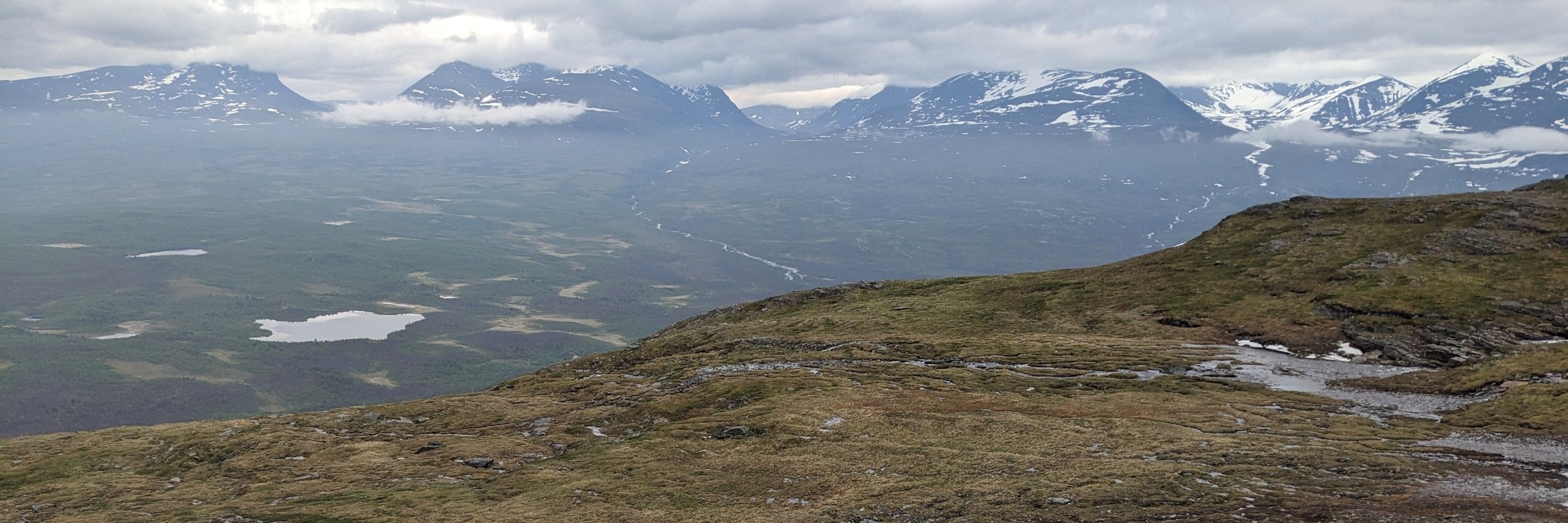
Scientist. Climate change and ecosystems, Arctic, boreal, uplands, plant ecology, biogeochemistry, biodiversity. I like to run when I'm not injured.
Reposted by Jason P. Evans, Gareth K. Phoenix

"Browning events in Arctic ecosystems: Diverse causes with common consequences"
🔗 journals.plos.org/climate/arti...
"UK Arctic terrestrial science strengths and priorities workshop"
to discuss and then produce a prospectus outlining the UK’s “Strengths & Priorities” in Arctic terrestrial research.
Info and registration link here 👇
drive.google.com/file/d/1HV0c...
"UK Arctic terrestrial science strengths and priorities workshop"
to discuss and then produce a prospectus outlining the UK’s “Strengths & Priorities” in Arctic terrestrial research.
Info and registration link here 👇
drive.google.com/file/d/1HV0c...
Reposted by Ben Bond‐Lamberty, Gareth K. Phoenix

Reposted by Ben Bond‐Lamberty
Technician post in soil carbon at the University of Sheffield @sheffieldpps.bsky.social supporting natural capital assessment in South Yorkshire, UK
jobsite.sheffield.ac.uk/job/Technici...
Reposted by Gareth K. Phoenix

How much can ecosystems slow climate change? Study how nutrients regulate carbon storage in global ecosystems. Led by Catriona Macdonald (HIE)
bit.ly/434xNOd
#CarbonCycle #EcosystemScience #AcademicSky
Reposted by Gareth K. Phoenix
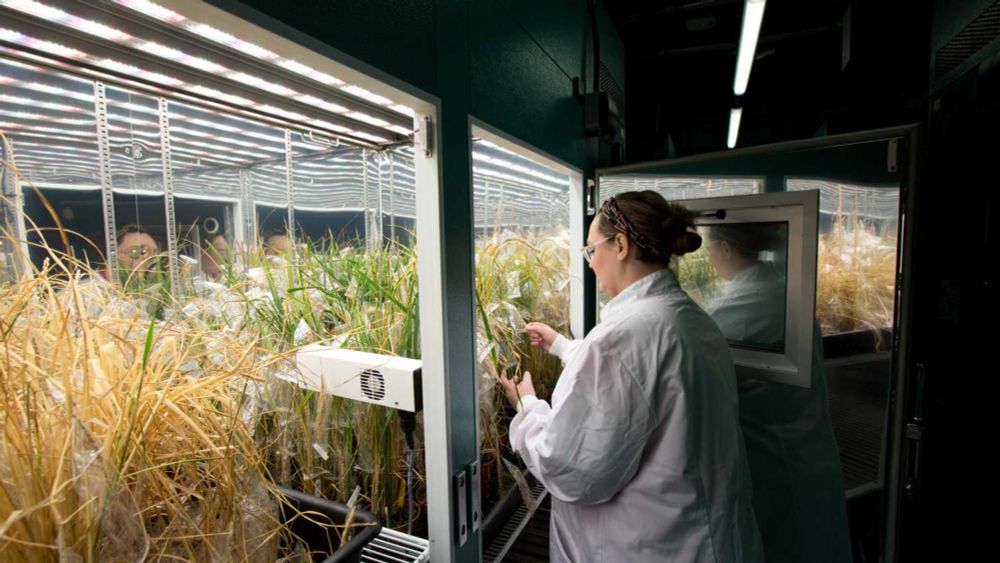
bit.ly/4375M8D #PhDopportunity #PlantScience #SoilScience #Sustainability #AcademicSky

PhD opportunity studying how nutrient availability impacts the ability of ecosystems to absorb more CO2 as CO2 levels rise.
With Catriona MacDonald and Ben Smith at Western Sydney University and myself here @sheffieldpps.bsky.social Sheffield
www.findaphd.com/phds/project...
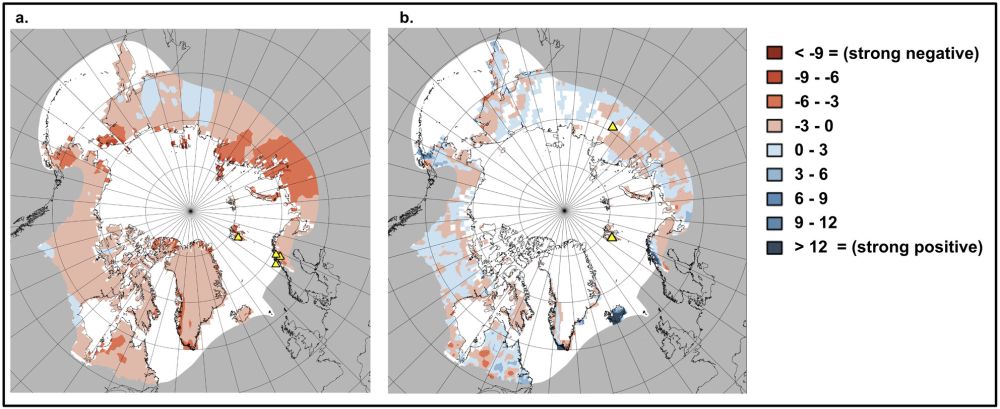
Increases in Arctic Extreme Climatic Events Are Linked to Negative Fitness Effects on the Local Biota.
doi.org/10.1111/gcb....
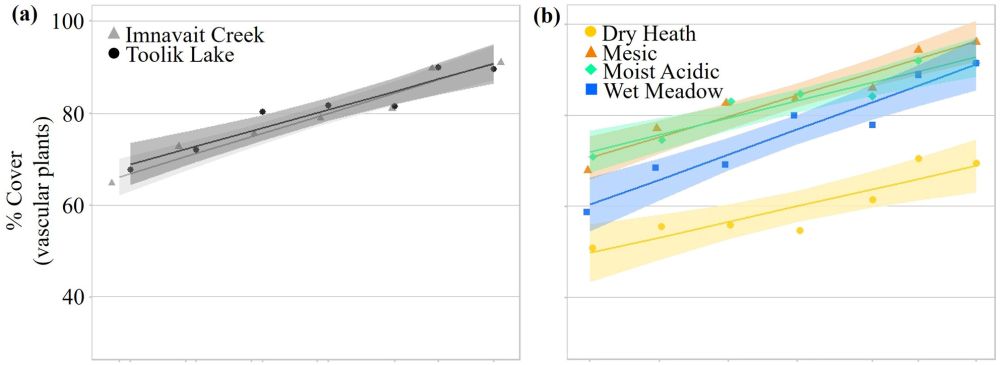
Tundra Plant Canopies Gradually Close Over Three Decades While Cryptogams Persist
doi.org/10.1111/gcb....
As the authors point out, "These results call into question the dominant dogma that cryptogams will decline with increases in vascular plant abundance" 🤯

Our new study @nature.com analysed plant diversity change in >2000 tundra plots over 4 decades. We found that plants changed unevenly, mostly driven by warming and biotic interactions.
www.nature.com/articles/s41...
🧵 (1/7) 🌐🧪🌱🌍
Reposted by Gareth K. Phoenix
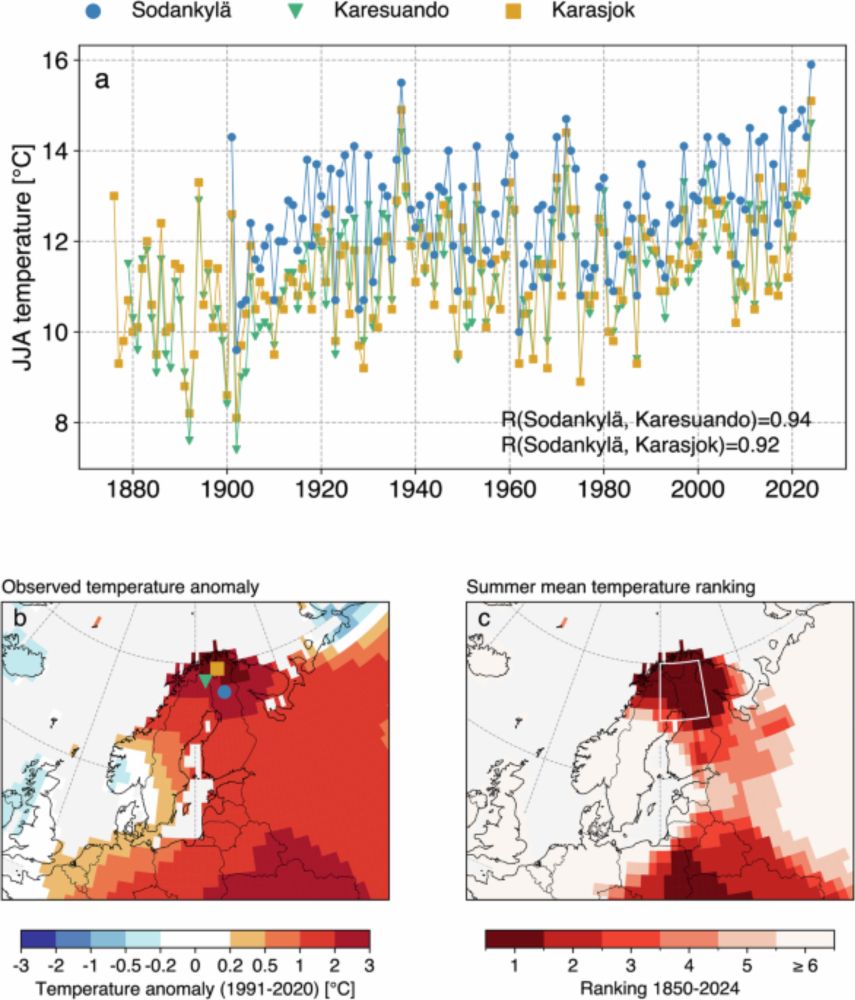
“Summer 2024 in northern Fennoscandia was very likely the warmest in 2000 years”
has been published in npj Climate and Atmospheric Science!
See the open-access paper from doi.org/10.1038/s416...
Short thread 👇
www.frontiersin.org/journals/env...
"When fire emissions are factored in, the increasing Arctic–Boreal Zone sink is no longer statistically significant, and the permafrost region becomes CO2 neutral"
"Although the Arctic–Boreal Zone was overall an increasing terrestrial CO2 sink from 2001 to 2020, more than 30% of the region was a net CO2 source"
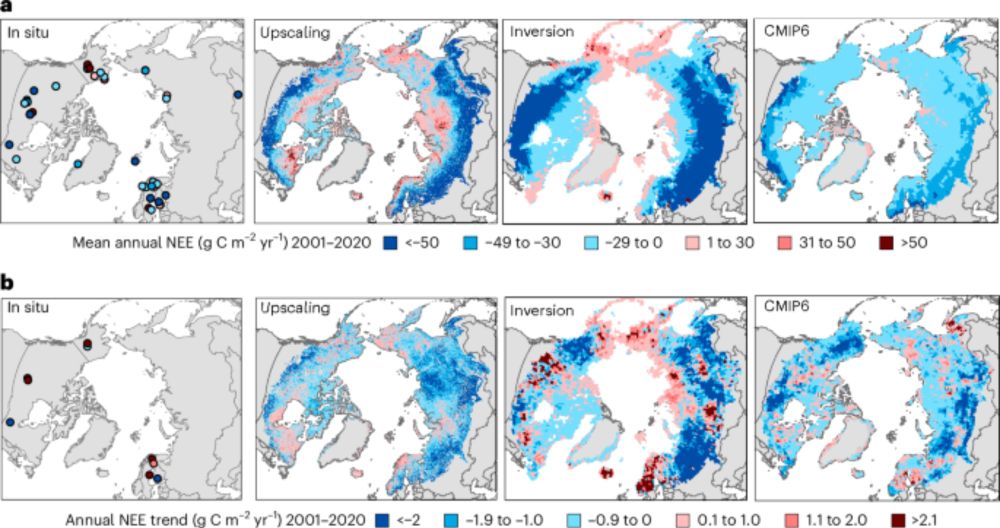
Wildfires offset the increasing but spatially heterogeneous Arctic–boreal CO2 uptake
www.nature.com/articles/s41...
Reposted by Gareth K. Phoenix
journals.plos.org/climate/arti...
@sheffieldpps.bsky.social, @robertgbjork.bsky.social, @scootjd.bsky.social, @thissideofthearctic.org, @arctic-carolina.bsky.social
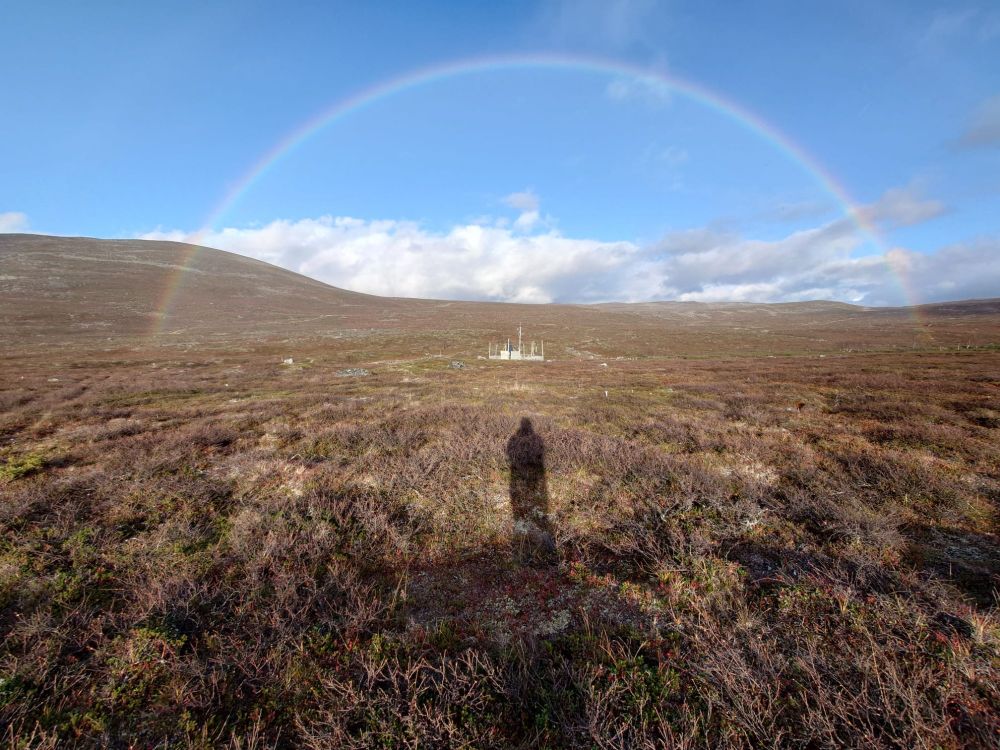
Reposted by Gareth K. Phoenix
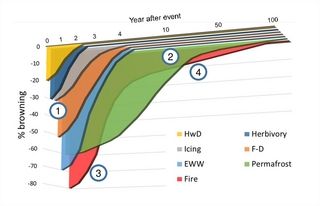
journals.plos.org/climate/arti...
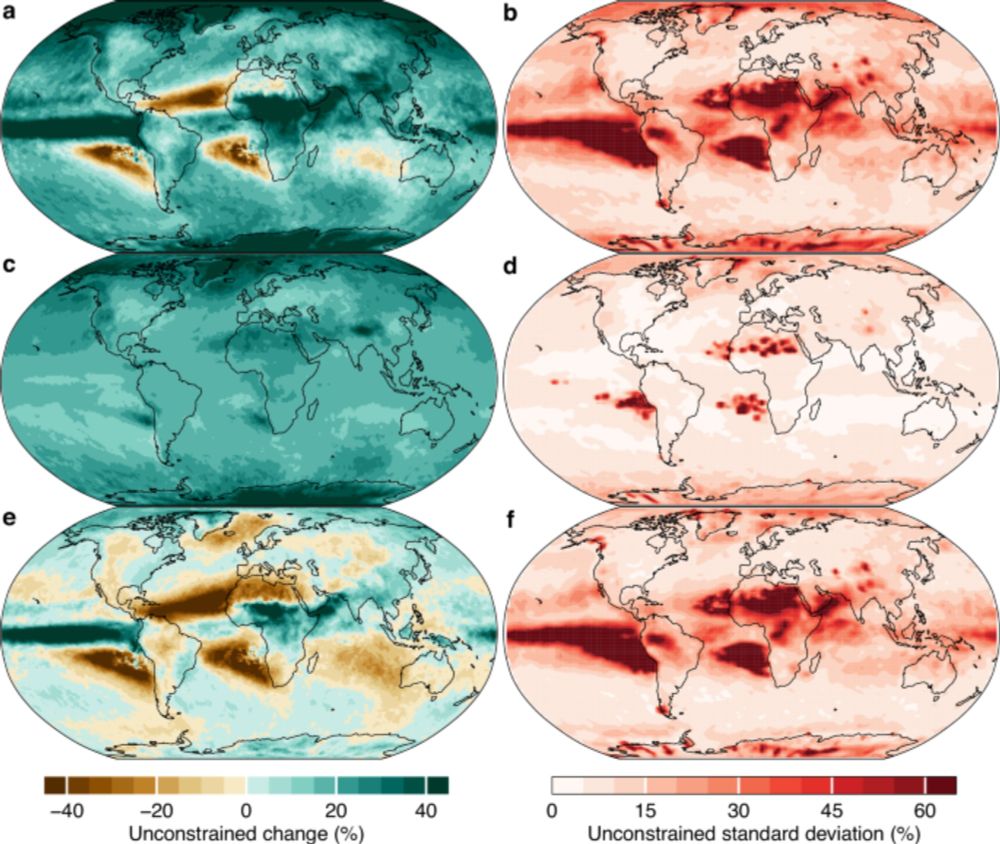
Increasing certainty in projected local extreme precipitation change.
Some regions are going to have big increases in annual maximum daily precipitation, and this is now known with greater certainty.
www.nature.com/articles/s41...
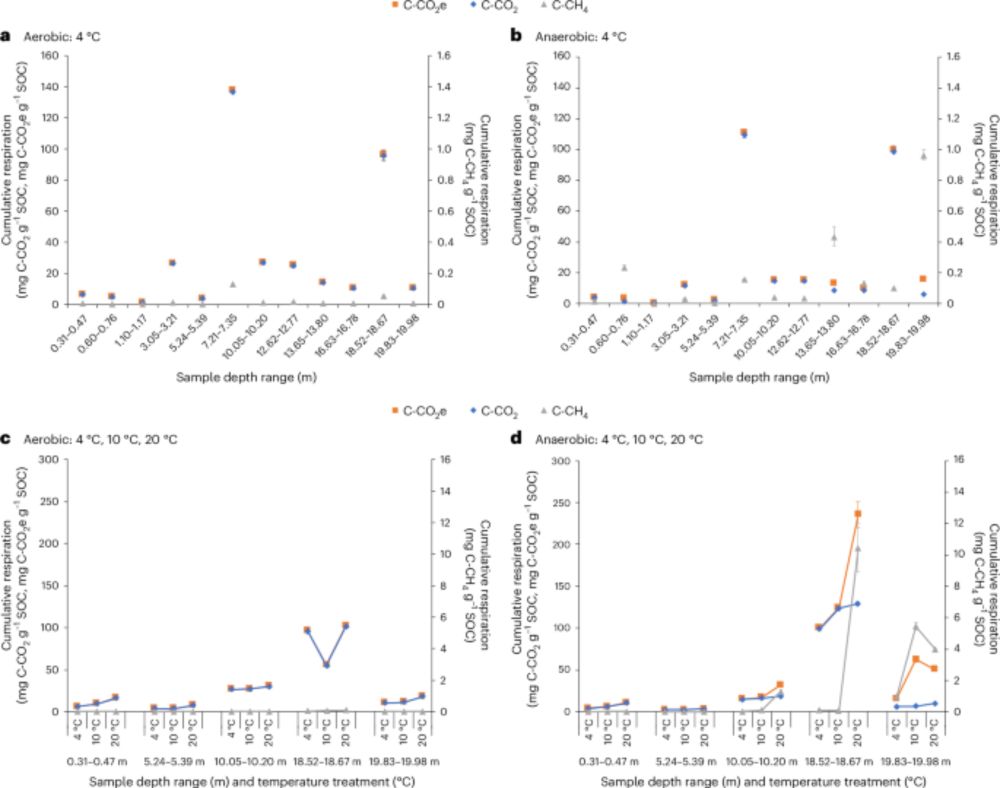
Carbon release from deep sediment permafrost thaw (20m in this study) may be much more important for changing climate than thought.
www.nature.com/articles/s41...
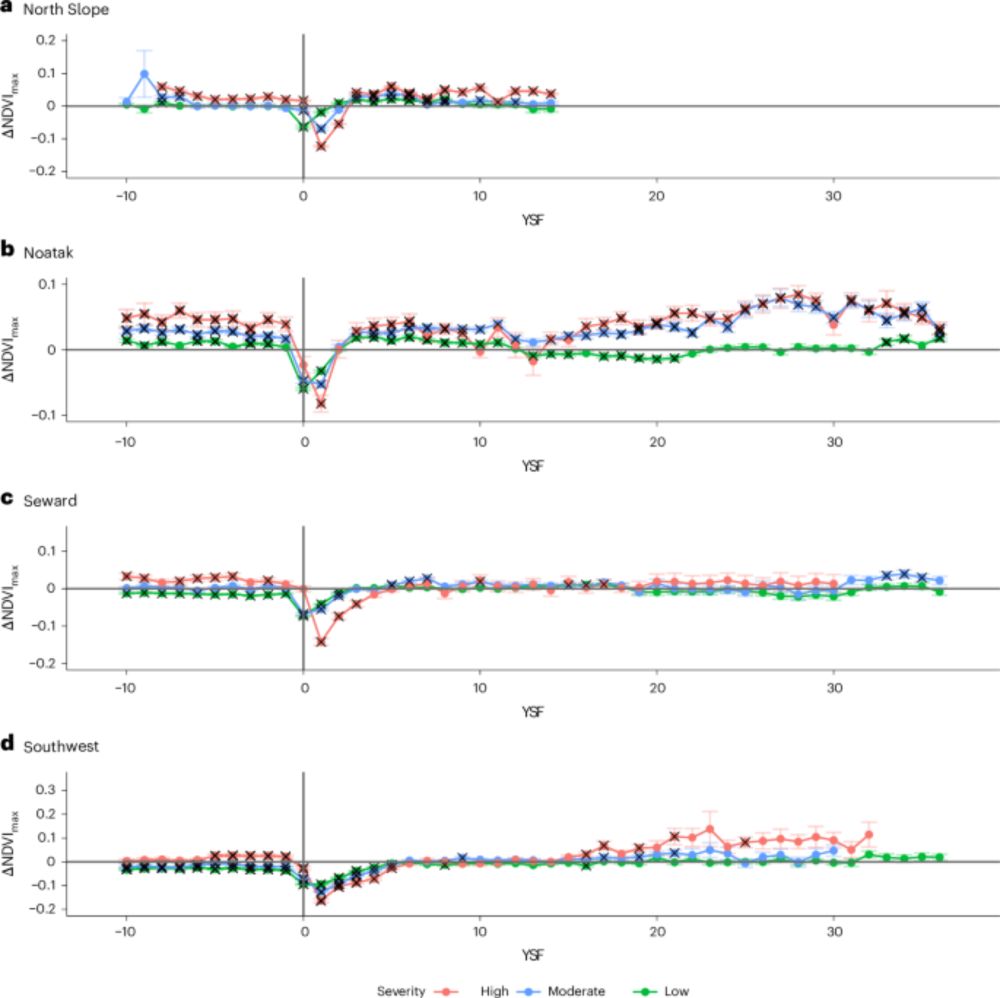
Fire promotes arctic greening by facilitating establishment and growth of larger stature deciduous shrubs and other species. And the more severe fires do this more.
www.nature.com/articles/s41...
"For the coming decades, the propagation of permafrost warming to greater depths is largely predetermined already"
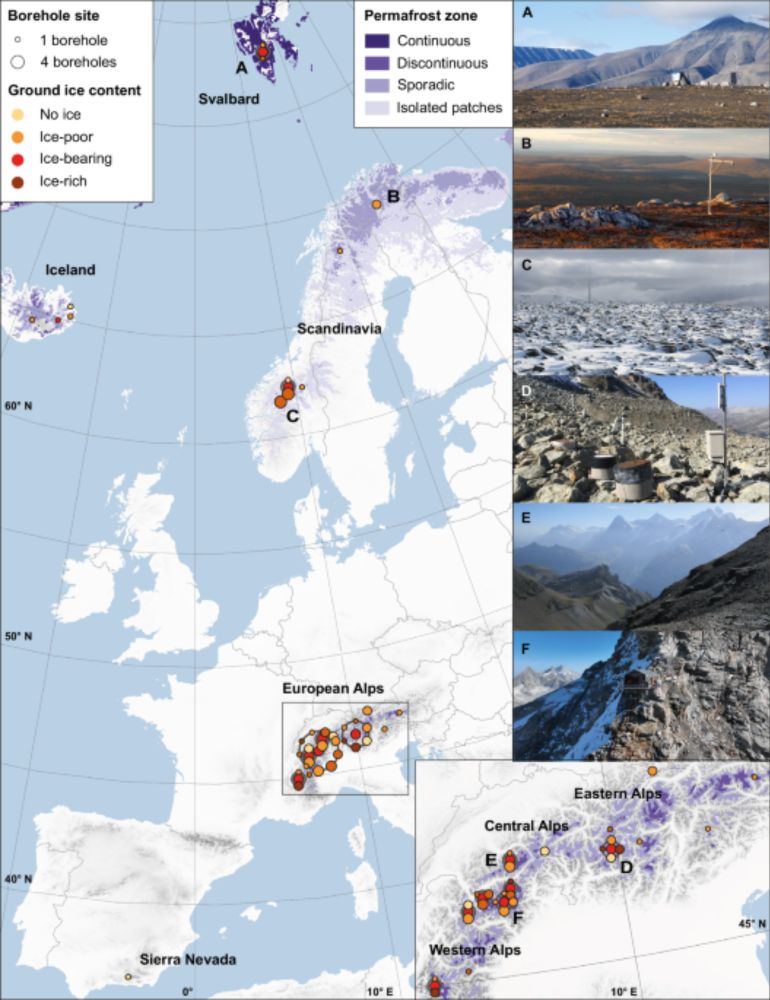
www.nature.com/articles/s41...
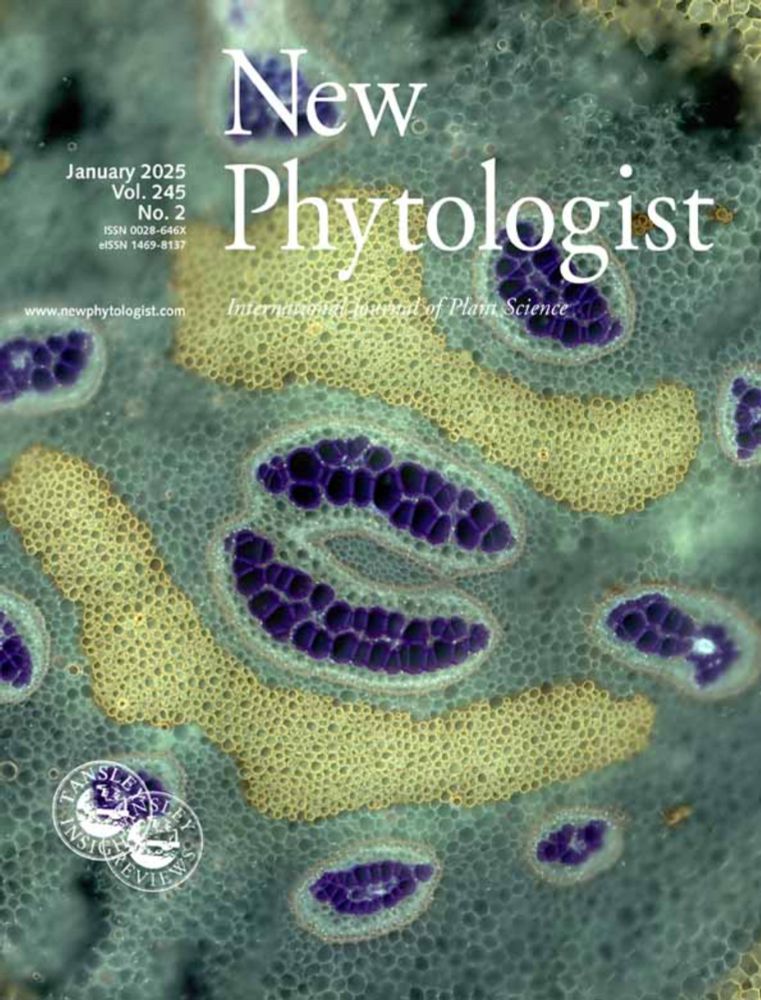
This meta-analysis shows that the rate of change of plant phenology in response to warming declines over time.
nph.onlinelibrary.wiley.com/doi/10.1111/...

